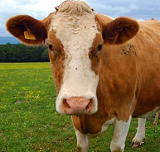January 25, 2018
|
Friday words #105, 2018-01-26
|
4679 hit(s)
You know what would be nice? Some sunshine.
I have a geo-topo-graphical term today that came up during a Facebook discussion with Friend Rick: spite mound. Based on what I can find, this might be quite specific to Seattle, and references some of the city's curious history.
Seattle was built on a set of hills overlooking Elliott Bay in Puget Sound. Hills can be inconvenient, though, so in the late 1800s, the city decided to "regrade" one of the hills by using water power to sluice it down into the bay. The story goes that some residents stubbornly refused to give up their homes. So the workmen sluiced around the houses, leaving them stranded on "spite mounds." Here's a picture:
(The history where I got this photo says that in fact people did not refuse to move; some just didn't get around to moving their houses before the job began. But the term stuck.)
The reason Rick brought this term up at all was in reference to what he called "modern-day spite mounds": so-called holdout properties where owners refuse to sell, so new development happens around them. Here's an example:
The analogy isn't perfect (no hill, hey), but I liked Rick's invocation of some Seattle history for these property owners who stick to their hills while development sluices on around them.
Not long ago I got to wondering about the expression a bum steer, as in "That tip about horses was a bum steer." Did this refer to an ox? And why do we call boy-cows steers anyway?
 Well, the answers aren't terribly exciting, but at least I got things sorted. First cows. The word steer has been used for a castrated bull for as far back as we have records in English; the Saxons had the word stéor. This is perhaps not surprising, since animal husbandry was a topic of keen interest back when people spoke Anglo-Saxon. There is a theory that steer goes back to a source word that also produced taurus (bull) in Latin. But the OED calls this "doubtful," in their arched-eyebrow way.
Well, the answers aren't terribly exciting, but at least I got things sorted. First cows. The word steer has been used for a castrated bull for as far back as we have records in English; the Saxons had the word stéor. This is perhaps not surprising, since animal husbandry was a topic of keen interest back when people spoke Anglo-Saxon. There is a theory that steer goes back to a source word that also produced taurus (bull) in Latin. But the OED calls this "doubtful," in their arched-eyebrow way.
As it happens, a bum steer doesn’t actually have to do with inadequate cows. In this expression, steer is a nounified version of the verb steer. If you got a bum steer, someone done steered you wrong. (I asked my wife, and this was self-evident to her.) But while I was looking up steer-the-verb anyway, I learned that this was also a word used by the Old Englishers. It originally meant to guide a) a vessel and specifically b) using a rudder or oar. (Thus it shares a sense, sort of, with whip to refer to a vehicle.) Only later (okay, still in medieval times) did it come to generically mean pointing your generic ride in a specific direction.
I did also find out that bum steer is an Americanism, first recorded in 1899, and that there is such a thing as a non-bum type of steer, i.e., steer used to just mean a piece of advice. News to me.
Like this? Read all the Friday words.
 |
|

 |
|
